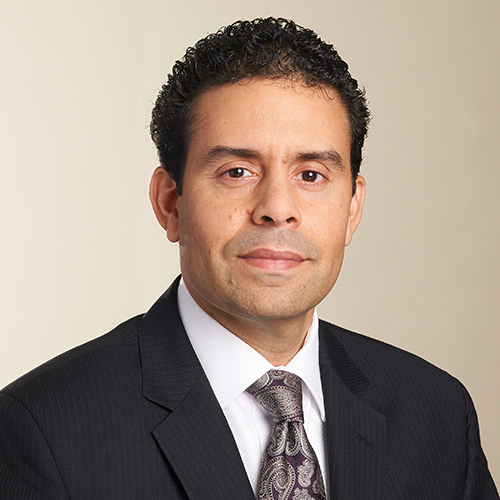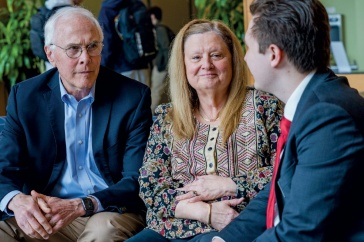
Peter Nieves, a patent attorney at Sheehan Phinney and former adjunct professor at UNH Franklin Pierce School of Law, has been working to create a scholarship program at the law school to raise the number of underrepresented students studying there.
The end goal is to create a more diverse population of lawyers in the Granite State, to ensure that BIPOC clients in need of legal assistance will be more likely to find an attorney who can relate to their personal experiences and heritage.?
Nieves, part of the SBA/Dean's Task Force on Racial Justice, Diversity and Inclusion at the law school, recalls an experience with a woman he’d met through Hispanic community events he’d attended that made him aware of this need for representation.
  |
| Attorney Peter Nieves |
The woman had asked for a referral to a local attorney who could handle a family law matter and she was emotionally drained by the situation, he says.
“I referred her to an outstanding attorney who clearly could handle her matter and she later called me and asked if I would attend the meeting with the attorney because she wanted someone ‘like her’ there, specifically, someone Hispanic,” Nieves told New Hampshire Bar News recently.
Nieves, who is Puerto Rican and grew up in Brooklyn, N.Y., attended the meeting and remembers how grateful the woman was to have him with her.
“Her point was that she desired to have an attorney present who could relate to her, the family unit, her heritage, and more. While hesitant, I attended her initial meeting with the attorney so as to make her more comfortable. I do not know if she became a client of that law firm or not, and I did not know her personally, but she was extremely grateful for my attendance.”
Though New Hampshire remains far less diverse than much of America, diversity is growing in the state according to a report by the Carsey School of Public Policy at the University of New Hampshire. While in 2018, 90.0 percent of the state’s population was non-Hispanic white, making New Hampshire one of the nation’s least diverse states, this change represents a 5.1 percentage point decrease from 2000. Overall, the shift created a doubling of the proportion of the state that is minority, from 61,600 in 2000 to 136,000 in 2018.
The growing population of minorities combined with the call for racial justice following the killings of a number of Black men and women last summer is what compelled law school Dean Megan Carpenter to put together the task force which released its report and recommendations in September 2020.
The report seeks to increase diversity of the law school’s students, staff, and faculty; create a welcoming, inclusive, and diverse community – both inside the law school and in the broader community; and make additions and/or changes to the law school’s educational programming to promote knowledge of race and the law, including in the training of lawyers and the provision of legal services.
Want to Help?
For more information about the Diversity, Equity, and Inclusion Scholarship Fund contact Maria Gudinas, Director of Development, maria.gudinas@law.unh.edu or (978) 430-4253.
With more than 75 percent of students at the law school coming from out of state and half of those choosing to remain, Carpenter says she believes the law school can play a significant role in diversifying New Hampshire.
Some of the task force’s recommendations, including the scholarship that Nieves is spearheading, are already being implemented, Carpenter says.
“We are currently raising money for scholarships to make a legal education accessible to diverse populations of students and working to develop an internship program for law firms that would guarantee a summer job for diverse students after their first year of law school,” she told New Hampshire Bar News. “We believe that this kind of partnership will help diversify law firms, will expand a pipeline for diverse attorneys in New Hampshire and beyond, and will be attractive to prospective students from diverse communities. And we are increasing our outreach in hiring as we seek to expand the faculty.”
So far, Carpenter says the school has more than $100,000 in a fund dedicated to Diversity, Equity, and Inclusion, and $30,000 in the Scholarship Fund.
Nieves’s hope is to reach $200,000 in order to provide two or three students up to $20,000 a year in assistance.
For Nieves, who is married to a New Hampshire native and has made New Hampshire his home, the need for assistance the scholarship will provide reminds him of his own experience struggling to pay for school.
“My parents did not have the resources to provide for college or law school since they were taking care of my grandmother and other matters, so I worked two to three jobs at a time while attending college full time and took loans for law school. A scholarship like this would have been a great help.”
-- Excerpted from "Raising the Bar on Diversity," by Scott Merrill, NH Bar News
?



















































